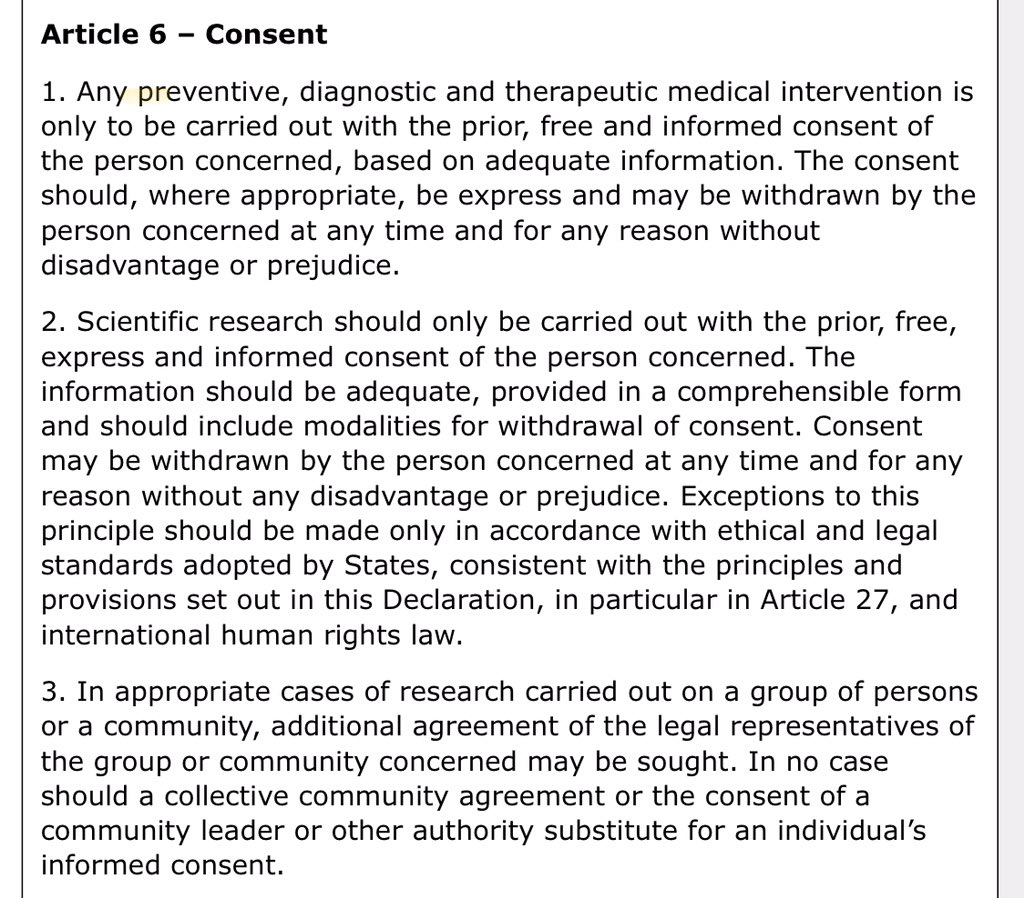This is a deeply regressive measure that reverses the progression of international humanitarian law and the common law towards respect for bodily integrity; and the recognition that that respect requires the protection of the right to informed consent and the absence of coercion.
https://twitter.com/Valkyrie20201/status/1414610598034280457
Compulsory vaccination is not unknown in this country - it was tried in the 19th century at a time when the poor were expected to know their place and that place was set by Poor Law Guardians. Aside from the effect on their bodily integrity and dignity, it was not a success.
But it was the 20th century that unveiled what medical professionals can do when unchecked by the protection of the dignity of the human person and his right to bodily integrity.
The Nuremberg Code was primarily addressed at informed consent before participating in medical experiments-as one would expect after the horrors of Mengele. But the application of the principle to the ethical necessity of informed consent to all treatment was obvious & necessary.
Given that these vaccines have been given emergency authorisation and not a full licence, because they have yet to complete the testing protocols necessary for licensed medication, the Nuremberg Code has direct application.
But the necessary extension of the principle of informed consent has been recognised in domestic caselaw, the caselaw of the European Convention of Human Rights and in authoritative declarations of international humanitarian law.
See, respectively, R (Wilkinson) v Broadmoor Special Hospital Authority and others ([2002] 1 WLR 419, Glass v United Kingdom (2004) 39 EHRR 341 and the The Universal Declaration on Bioethics and Human Rights 2005, which includes this Article: 

See also the emphatic finding of the Supreme Court in Montgomery v Lanarkshire Health Board [2015] UKSC 11, which I have summarised thus: 



Ultimately, this is a matter of respect for the human person. To coerce any person into accepting medical treatment against her will is abhorrent and an attack on her dignity as a human being. That includes where treatment is required as a condition of her employment.
It is difficult to think of any greater coercion.
And, as I summarise in this thread, it is not a public policy decision that is grounded in logic.
https://twitter.com/Francis_Hoar/status/1400052434723119107
And another reminder. This form of vaccination does not and was not designed to prevent transmission, only serious symptoms. 

• • •
Missing some Tweet in this thread? You can try to
force a refresh






